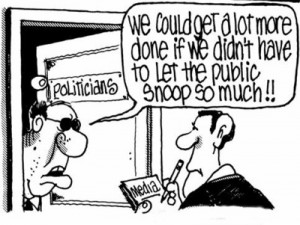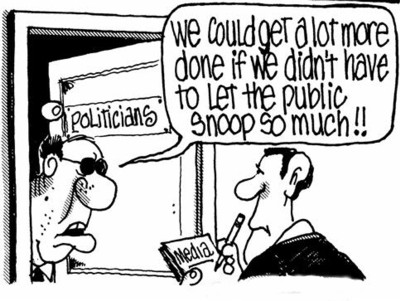by Jillian Kay Melchior • National Review Online
 As news breaks about the Department of Health and Human Services’ missing HealthCare.gov e-mails, it’s pertinent to note how difficult it has been to obtain records in general about Obamacare, as I’ve learned personally over the past many months.
As news breaks about the Department of Health and Human Services’ missing HealthCare.gov e-mails, it’s pertinent to note how difficult it has been to obtain records in general about Obamacare, as I’ve learned personally over the past many months.
In Nevada, National Review had to sue the state health exchange before we were able to obtain records about how many Obamacare navigators had criminal backgrounds, despite the fact that they were handling consumers’ private information. (As it turned out, at least eight did.)
We faced similar struggles in California, where the health exchange employed some twisted logic to explain why it could not release the full records regarding navigators’ criminal backgrounds:
“All of these documents are nondisclosable because ‘the public interest served by not disclosing the record clearly outweighs the public interest served by disclosure of the record,’” a lawyer for the insurance exchange wrote, citing California Government Code §6255. “Disclosing the names and criminal records of individuals applying to assist in Covered California’s push to enroll vast numbers in health insurance by March 31, 2014, is likely to discourage participation in this critical program and thus harm the people of California.”
In the end, we discovered that at least 43 convicted criminals were working as Obamacare navigators in California, including individuals who had committed serious financial crimes.
And those are the states where we even managed to get an answer. Though the state-by-state back-and-forth is a long story, we were denied public records even after appeal in the District of Columbia, and we’ve struggled to get clear answers elsewhere, too.
In Hawaii, the legislators saw it fit to totally exempt the health exchange from the state’s sunshine laws, creating what one reporter described to me as “a huge accountability problem.”
It’s not just records dealing with navigators, either. We recently filed several requests looking into the tech security of the state and federal health exchanges, and coaxing them to produce records has already proven difficult.
Then again, there’s a lot for the government to be embarrassed about. The limited records we have managed to obtain have revealed that a Romanian hacker was able to gain access to a Vermont health exchange development server for an entire month before detection; that a federal audit found “high and critical issues” in the New Mexico health exchange; and that Covered California had potentially jeopardized the personal information of at least 378 Obamacare enrollees.
Yet even the Obama administration wrote in a 2009 memo that “the Freedom of Information Act should be administered with a clear presumption: in the face of doubt, openness prevails. The government should not keep information confidential merely because public officials might be embarrassed by disclosure, or because of speculative or abstract fears.”
As I write today, the Obama administration has talked the talk, but it’s failed to walk the walk. Journalists, congressmen, inspectors general, and other watchdogs have repeatedly struggled to force the government to release records that rightly belong to the public.
One might well ask: What does the Obama administration have to hide?
. . . . . . . . . . . . . . . .
Jillian Kay Melchior writes for National Review as a Thomas L. Rhodes Fellow for the Franklin Center. She is also a senior fellow at the Independent Women’s Forum.
